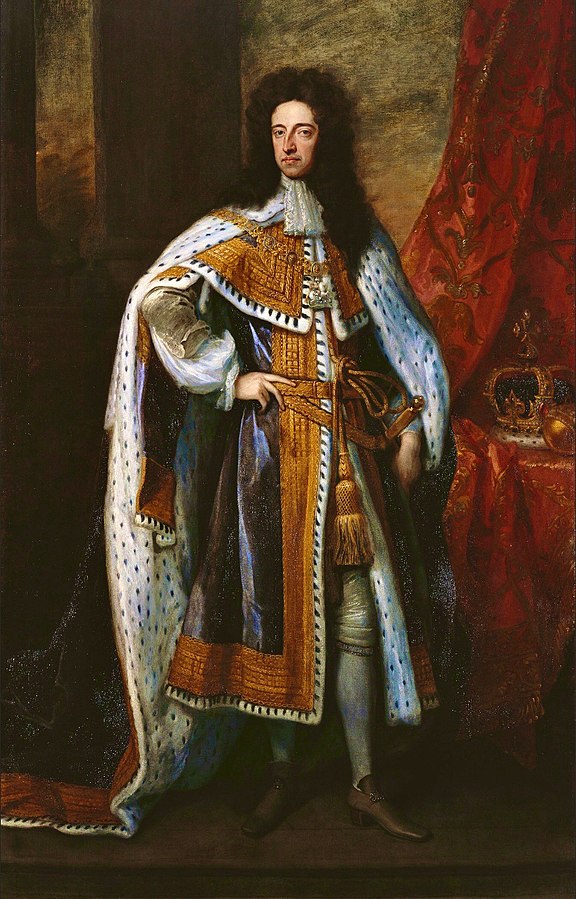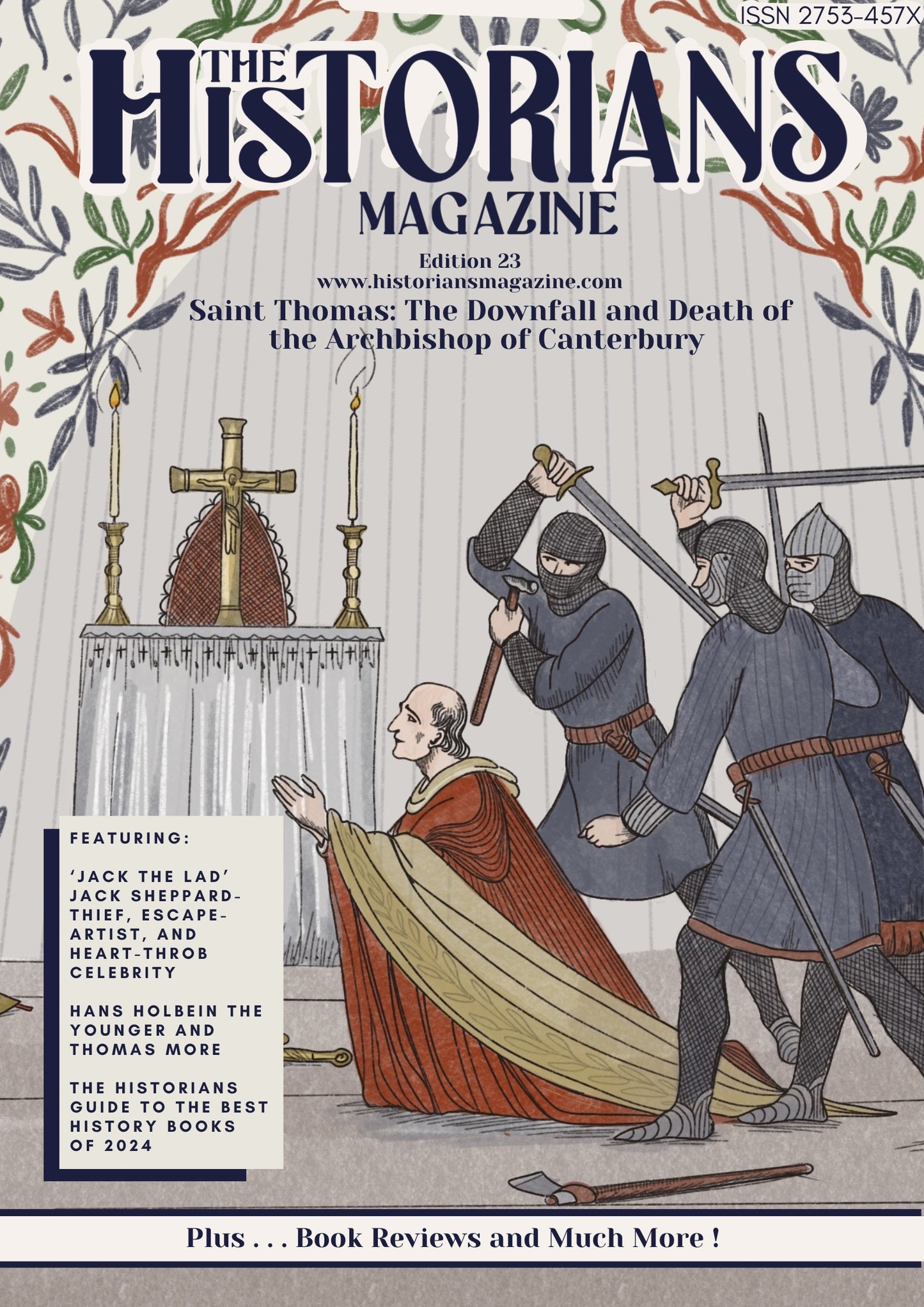
Kings as scourges of parliament: Thomas Rymer and the Roman ideal by Charlie Bowden
Share
Stuart England was a hotbed of polemic shoring up the strength of its representative assembly. Given the significant role parliament played in the political upheavals of the period, it is not surprising that such paradigm shifts were preceded by occasional flexes of institutional muscle. Sir Robert Phelips memorably declared in the House of Commons in 1625 that “we are the last monarchy in Christendom that yet retain our ancient right and constitutions”, and many contemporaries agreed with him. The strength of England’s legislative body was such a commonplace in Stuart political culture that even over a half century following Phelips’ famous remark, Thomas Rymer was echoing his words in comparing parliament to the prime of republican Rome. Rymer (born c.1643) was a poet and antiquary who served as the official Historiographer Royal to the English court under William III and Anne between 1692 and his death in 1713. He is best known for using the privilege of his position to publish the first edition of the Foedera, a collection of treaties between the English crown and foreign powers from the twelfth to the seventeenth centuries. However, he was the author of numerous other works, including a 1681 treatise entitled A General Draught and Prospect of Government in Europe. In that text Rymer observed that “you are not to expect truth from an Historiographer Royal”, ignorant to the fact that he would occupy that precise office a little over a decade later. For Rymer, his contemporaries failed to see the big picture when discussing the histories of their respective polities: a parliament should not be conceived as “some Creature form’d and nourisht under this or that Constitution” but as an example of European liberty’s natural condition. Men who occupied the position Rymer would eventually fill could not extract truth from their studies of individual legislatures and representative assemblies. That truth was only illuminated by examination of the classical ideal – the Roman Senate during its republican prime – and how the parliaments of early modern Europe compared to it. Rymer heard echoes of this senatorial strength in the councils and assemblies instituted by Charlemagne in ninth-century Gaul; the first Holy Roman Emperor ruled “in the old customary Parliamentary way, every where”. The rulers of the Carolingian successor kingdoms did not uphold the same liberating standard. The General Draught pointed its fingers at Louis XI of France and Holy Roman Emperor Charles V for effecting the demise of the representative assemblies in France and Germany, which Rymer deemed practically irreversible. Typical for a Whig historian, however early in the tradition he may have been, Rymer viewed the English parliament as the last bastion of Charlemagne’s vision for a revival of republican democracy. Norman conquest, the Reformation and even civil war could not uproot the firm foundations of representative government in Westminster. The decades prior to Rymer’s treatise had proven that England’s assembly could survive without a monarch and thus, in his view, could never be weakened or destroyed by royal prerogative. Rymer recognised in the General Draught that the power of the Roman Senate was not static. In his exploration of the parliaments of his day, he was thus searching for remnants of a very specific ideal, one where the senate bolstered the Roman leadership and not the other way around. He noted that in the days before the republic, Roman kings governed by parliament until the reign of Tarquin the Proud, “but how fatal did he find that innovation?” Even prior to the existence of the state which glorified representative assemblies, for Rymer it was obvious that good kingship was facilitated by a strong senatorial institution. When referring to the principate, when senatorial authority declined compared to what it had been during the age of the republic, he still made clear that “the Caesars were never so absolute, as when the Senate had the show, and the name of all”. The constancy of their power emboldened that of the emperor, who “affected to have all done in the name of the people and Senate” even if the assembly’s practical authority had waned. Rymer perceived that the relationship between ruler and representative assembly was inherently symbiotic: in the golden age of the Roman Republic, the balance was tipped in the senators’ favour. In later periods the symbiosis was still significant, even if the power dynamic was out of kilter. It was only when the power of the senatorial elite was eroded during the dominate that the lack of such a relationship proved fatal to the empire. Without the backing of a legislative authority, the emperor became “onely Tenant at will to the Army” who “made and unmade” rulers as they saw fit, engineering the collapse of the empire in 476. It was for this reason that Rymer so vehemently praised the conciliar governments of Cassivellaunus in Britain and Vercingetorix in Gaul who repelled the invading armies of Julius Caesar. It is notable that Rymer praised Caesar’s Commentarii de Bello Gallico as the true source for these warriors’ approach to leadership, rather than domestic “Botchers of History” who “shew a jolly Succession of Monarchs” instead of the “Common Councel” that to him was so vital to their successes. Though he failed to note that Vercingetorix ultimately surrendered to Caesar and was taken prisoner and eventually executed, Rymer was seemingly more interested in the survival of these military councils than the survival of the men who propagated them in opposition to a Roman dictator. In the General Draught he emphasised that this style of government “continued the same in the times of which Dion Cassius and Tacitus write”. Its consistent presence in these regions during and after the time of the Roman Empire originated in Germany, where the people’s sense of “liberty and moderate sway” were carried into Britain and Gaul when they were conquered by the Romans.
 Sir Robert Phelips
Sir Robert Phelips
Rymer additionally consulted Tacitus on the scheme of German government that was transplanted further west, summarising the classical historian’s view that “in lesser matters the principal men onely, in the greatest affairs all consult”. This form of administration was, in his eyes, so successful that even when Pharamond, the legendary first king of the Franks, mixed his people with those living in Gaul, it was “agreed beforehand” that both groups would govern according to the evergreen principle of “Common Councel”. The prosperity of this system was threatened by the establishment of manifold Roman successor states, each with their own forms of government, after the empire’s collapse. However, this uncertainty only lasted a few centuries before parliaments were imbued with the boundless legitimacy that Charlemagne afforded them. That great ruler, viewed as a founding father of Christian humanism, enshrined parliamentary democracy for Rymer in uniting the peoples that would go on to rule early modern England, France, and Germany. The General Draught contended that Charlemagne drew his authority as the inaugural Emperor of the Romans from his adoption of conciliar government. Rymer wrote that despite the changing of the guard that came with his imperial coronation on Christmas day 800 and despite the power he laid claim to as the founder of the Carolingian dynasty, Charlemagne continued to govern according to classical ideals. Drawing on the Frankish annals of Hincmar, Archbishop of Rheims, Rymer recognised that “notwithstanding all that power and fortune, and the Imperial Crown that adorn’d him, [Charlemagne’s] Language was still the high German, and his Government did still in the old Parliamentary way go on and prosper”. The notion that his successful management of such a vast empire could be linked to his annual parliaments stemmed from Hincmar and was adopted by Rymer to push the tradition into medieval and early modern statecraft. Charlemagne, as the ‘father of Europe’, embedded the lands he conquered with Carolingian values, themselves founded upon the prospect of a legitimate successor state to the western Roman Empire. Those standards of rule were picked up by the peoples that went on to govern the kingdoms of England and France and the Holy Roman Empire, each securing the Carolingian inheritance to different extents. Rymer not only expounded the value of Charlemagne’s incorporation of representative bodies into his leadership; he placed those bodies within the wider realm of a mixed government in line with what Polybius envisioned in his Histories. Hincmar, according to Rymer, viewed the yearly assemblies of Carolingian elites “under the terms of Seniores and Minores” who formed two parts of a three-pronged system alongside the emperor himself. This was a continuation of the German system of “the Rex, the Principes, and the Omnes” that Tacitus had observed, and this basic division of governmental power could be observed in the early modern manifestations of these European assemblies. England had the king and the two houses of parliament who depended on each other for their powers; France and Germany meanwhile, according to Rymer, had pushed their respective representative assemblies to the wayside so that their rulers could hoard power for themselves. While any protections for their legislatures had been bypassed by Louis XI and Charles V, England’s Magna Carta shielded its parliament from tyrannical kingship. Just seven years after the General Draught was first published, Rymer would further praise this principle in a poem celebrating the arrival of the future William III in England: Thro' a Red Sea, from squallid bondage clear, We trod a Wilderness long Forty year: Till now a Nobler Moses shews at hand Our so much promis'd Magna Charta Land. The English parliament was thus upheld in the seventeenth century as the legitimate sovereign body of the kingdom, even being able to change who the monarch was. This might have been due to the religious persuasions of James II, but Rymer clearly stated in the General Draught that the political realm was exclusively secular: “where-ever Christ is Preached, the Soul-saving Doctrine in no wise operates upon the policy or civil Constitutions”, leaving those affairs to the powers of “ordinary prudence and discretion”. Rymer was thus more akin to Baruch Spinoza than John Locke in his thinking, arguing that religion had no place in political institutions and thus scripture could not provide any “manual of the relations between government and governed” as Locke suggested it could. An ideal parliamentary system would not be affected by religious discourse – Rymer argued that since the English parliament had withstood the Reformation, it could withstand anything – and the French and German systems had failed to keep zealots out of government and thus had failed in their entireties.

A sixteenth-century portrait of Charlemagne
Rymer argued that France and Germany’s representative assemblies had fallen where England’s had continued because their power-hungry rulers had allowed Catholic, specifically Jesuit, preaching to distort the legitimacy of parliamentary authority. He stated that, unlike France and Germany (who still conducted legislative proceedings in Latin), England had not been and would never be “gull’d by Jesuitical artifice”. In this sense, Rymer was part of a loose school of Stuart antiquaries who viewed England’s libertarian tradition as a battle against twin enemies, “tyrannical kings and the forces of popery”, rather than being a straightforward narrative of survival. England’s parliament was actively shored up by generations of statesmen who had steered the assembly through every crisis the realm had ever suffered, from the despotism of King John to the more recent horror of “the Gunpowder Treason”. The French and German assemblies, meanwhile, had allowed themselves to be pushed into a corner and eventually have their powers swallowed by their rulers. In the case of the Holy Roman Empire, Rymer stated that the development of a system of Electors who dictated the succession weakened the German assemblies beyond recovery. He blamed the machinations of Jesuits for this inversion of mixed government, arguing that “they would have the Pyramid inverted, and the whole stress of things rest upon one single leg, that their art might play the more freely, and they the more cleverly trip it down”. Charles V was not a Jesuit but many of the men in leadership positions across the Holy Roman Empire, according to Rymer, deliberately took power out of the hands of elected officials so it could all fall into the emperor’s lap. France, meanwhile, had fewer constitutional protections for its parliament because it had not endured the same threats as England that necessitated such contingencies to be implemented. When Charles VII brought an end to the Hundred Years War, it was easy for his son Louis XI to move against the “unmannerly, clump-fisted, bumpkin Parliament” that had attempted to rein him in. The distraction of the English claim to France removed, he was able to eliminate the authority of parliament by “slighting the Militia, and laying his project of a standing Army” in its stead. His use of Swiss mercenaries brought him personal power that did not translate to the elites in the French assembly, thus enabling Louis and his successors to step over the checks and balances that parliament had once provided. Neither the French nor German assemblies were destroyed entirely by Rymer’s time, but they had been progressively weakened to the point that they were rendered “sick, heavy, and unweildy” with few powers over their rulers. Louis and Charles had broken the cycles of conciliar government and representative democracy for their kingdoms and given way to rule by despotism. Rymer’s argument was not pervasive in Stuart England, especially because he went so far in his Whiggish interpretation of parliamentary history as to suggest that conflict with the English was the only thing preventing the king of France from overtaking their representative assembly sooner. However, the General Draught was useful in shoring up Enlightenment arguments about the nature of European constitutions. James Ralph reprinted the treatise in his 1744 work Of the Use and Abuse of Parliaments, where it supported his contention that “the obvious form of despotism was to govern without parliaments”. The supremacy of parliamentary systems was a common theme of discussion for Rymer’s contemporaries, but he positioned himself as the only one willing to examine it in the context of antiquity. Thomas Rymer’s tracing of classical representative ideals in the parliaments of his time, framed by the ever-present institutional legacy of Charlemagne, was not particularly notable or successful because it arrived too early for some of its arguments to be taken seriously and too late for others to be considered pioneering. His text was clearly informed by Renaissance humanism and the anti-papalist rhetoric of post-Reformation England, but he was a century removed from the hotbed of these notions. He was also attacking rulers who had been dead for over a century by 1681, meaning there were few who would care to contest his assessments of Charles V and Louis XI. Meanwhile, his view of parliament as an ideally secular institution removed from the machinations of religion was not grounded in popular sentiment; after all, he published the General Draught amid parliamentary attempts to remove James II for his Catholicism. The polemic was simply not as interesting as Rymer’s work as a literary critic or as the Historiographer Royal that he had railed against as arbiters of truth. It was a jumbled oddity of viewpoints that had been expressed for over a century and ones that were not welcome in the time of the Exclusion Crisis. Through all these foggy conclusions, however, it was clear that Rymer had a reverence for the English parliament that would soon be rewarded by William III. As the first king whose authority derived explicitly from parliamentary approval, it is unsurprising that he saw the benefit in placing the author of such a devoutly Whiggish work in his employ. William was the exact opposite of the parliamentary scourges that Rymer had illustrated in his treatise. It is small wonder that the General Draught was first reprinted in the same year that William was declared king by the assembly that Rymer had imbued with the spirit of the Roman Republic and the Carolingian Empire.
About the Author
Charlie Bowden is a BA History student in his final year at Jesus College, University of Oxford. He is broadly interested in the intersection of literature, gender and politics in the early modern period and his dissertation will explore the significance of masculinity in the literary works of Sir Walter Ralegh. He has also recently published the first comprehensive history of The Oxford Student newspaper, a copy of which is housed in the Bodleian Library at the University of Oxford.



